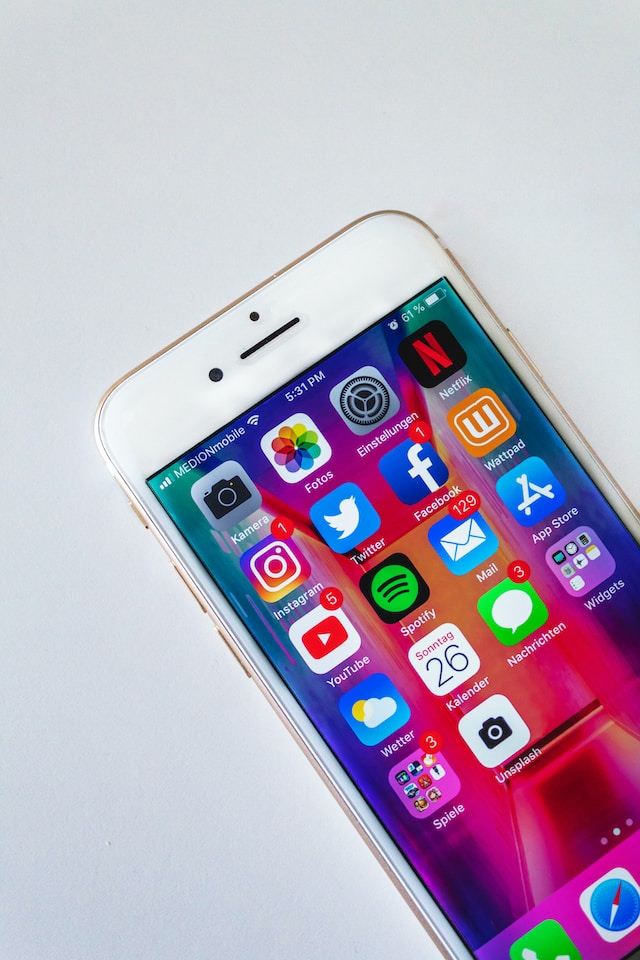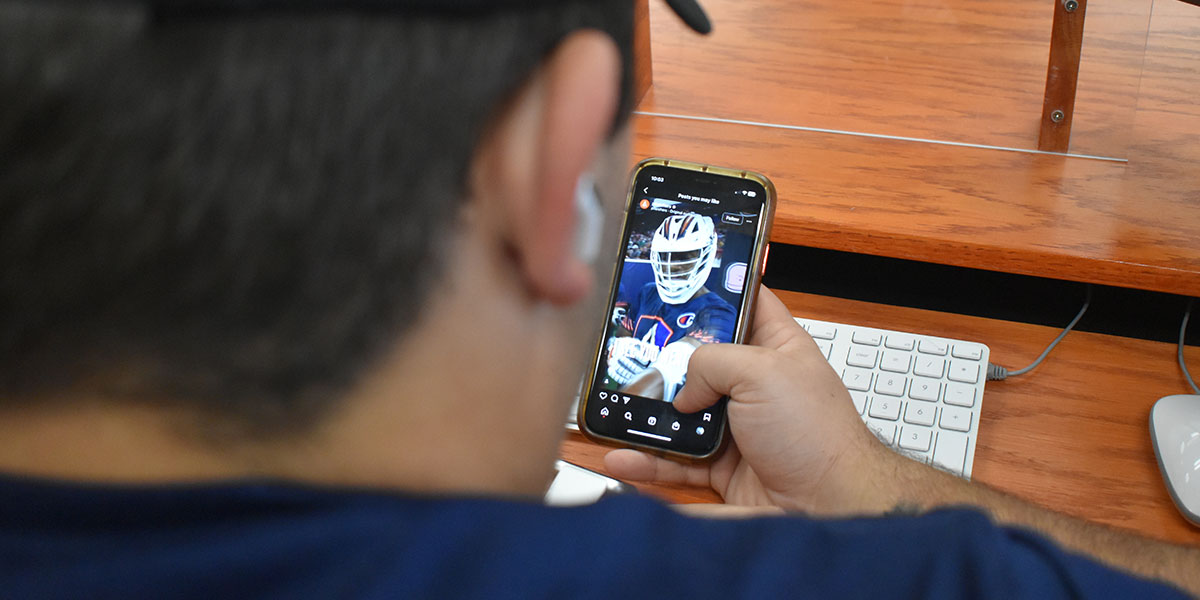My generation grew up while technology was developing into what it is today. We now have information and communication at our fingertips. Social media can be a helpful tool to stay connected with friends and family, but it can also have negative impacts. It is useful but should be used in moderation and under certain circumstances and pretenses.
Social media is an exceptional tool because it can be used to strengthen relationships, create new connections and find social support in tough times, but it is best utilized in wise moderation. Personal limits are necessary to help define and protect individuals in a variety of ways. Photo by Emily Retzer
__________________________________________________
Companionship is a significant factor in determining your mental health and overall happiness.
Social media helps us communicate with family and friends when we don’t have time to see them in person. This rang especially true during the COVID-19 pandemic.
Many people rely on sites such as TikTok, Instagram and Twitter to connect with each other and stay informed.
According to an article in WorkUp Blog, in-depth statistics reveal that 42% of people aged 18-29 get their news from social platforms. The percentage is much lower in other age groups as only 25% of Americans in the 30-49 age group, 15% in the 50-64 bracket, and 10% aged 65 and over rely on social media as a news source.
I get a lot of my news from social media because I don’t watch the news on TV or necessarily go out of my way to look up news to read on Google.
It is important that you do try to fact-check what you read on digital platforms because a lot of news can be misconstrued if you aren’t getting it straight from the original source.
After all, while social media sites have evolved to be legitimate news sources, their original intention has always been to allow us to network with people around the world who share our interests.
I’ve been able to make connections with future employers, fellow friends and even family members who live in different states.
You may find an outlet for your creativity, as well as a place for self-expression, through these platforms. You can share experiences or create change in the world by sharing your own ideas and opinions.
I don’t post on social media, but I enjoy looking at what other people have to say about topics I care about.
At the same time, I do find myself spending too much time on social media and overlooking important tasks that I need to get done.
Social media itself is not harmful. Rather, it’s the rampant over-usage in that we can become consumed with spending hours of time that could be more productively spent elsewhere.
This can lead to depression, isolation and loneliness. A study conducted by Middle Georgia State University noted the connection between the use of social media and its undesirable outcomes that increase incidence of anxiety, depression, body image concerns, and loneliness in teens and young adults.
I tend to take breaks from social media because I realized I was spending too much of my time on it and not really connecting with my friends and family as much as I should be.
According to an article in Etactics, 13% of kids aged 12 to 17 years old report depression and 32% report anxiety, and 25% of 18- to 25-year-olds report some form of mental illness. These age groups also report high usage of social media.
Out of all age groups, 18-29 year-olds report using social media the most according to an article by Oberlo.
Mobile phones with direct internet access have increased the usage of social media, especially in my generation. The more time you spend online, the less genuine time you have to spend with family and friends.
Many social media websites have created an infinite scroll feature, which allows users to refresh their page and there will be new content available each time.
According to an article in Freedom blog, social media sites like Facebook, Instagram and Twitter encourage continuous scrolling because of the sheer volume of content.
A theory called unit bias is instilled because human beings are naturally motivated to finish a unit of something. When the endless scrolling is given to us, we tend to keep consuming, even if it’s been hours.
At that point, it becomes mindless scrolling for a variety of reasons like boredom, procrastination or simply for entertainment.
This tactic of getting us to consume more content is working because we end up procrastinating important things just to keep looking at content.
According to an article by The Huntington Post, research conducted by Stop Procrastinating, an app that disconnects users from the internet in attempts to boost productivity, finds social media and other internet time-wasters to be the leading culprits behind millennial procrastination trends.
Not only do we have endless content, but we also have algorithms making sure we are seeing what we want to see.

According to an article in CEO Magazine, algorithms are constantly changing and are largely impenetrable strings of code that know when you’ve read something, for how long you read it, what people who resemble you enjoy and what they enjoyed the most after that.
As Andrew Dodd, an associate professor working in the field of media studies at the University of Melbourne, points out, “You now live in a world where the media finds you, rather than the other way around.”
It’s almost scary how accurate these algorithms really are. The content I see on my social media is exactly what I want to see, for the most part.
Algorithms adjust to what you like to keep you scrolling for hours on these websites. It is quite literally designed to keep your attention for as long as possible.
I can confidently say I spend a lot of time on social media, and I wish I could say I don’t. Tiktok, especially, often has me in a chokehold for hours on end.
I recently deleted my Instagram because I just never posted or used the app in general. It was also somewhat triggering for me to see all these Instagram models and their perfect lives and bodies, so I decided I didn’t need to see that anymore.
According to an article in D’Amore Mental Health, social media can trigger obsessive thoughts about appearance for those with body dysmorphia. Their feed may be full of people looking “perfect”, which can be a constant reminder of their perceived flaws. This can lead to compulsive actions to try to remediate the issue.
Children and young adults look up to influencers and want to be like them and look like them and that in itself is a major issue.
We shouldn’t have to completely change our appearances for the sake of a like or a follow on social media.
Social media addiction is plaguing the world. We no longer interact face-to-face as much. We are all so glued to our phones and other technology that we aren’t really experiencing real-life moments with friends and family.
I believe everyone should take time for themselves to step away from social media. Taking breaks from all these sites, I think, would have a tremendous impact on people’s mental health.
Using social media in moderation is the key to breaking the cycle of the negative impacts it has on us.
When going out to eat for lunch or dinner, for example, consider putting your phone down and enjoying each other’s company.
Making memories is far more important than scrolling on social media.
